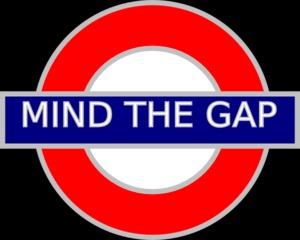As a child, I remember carrying around my favorite Disney characters’ story books, like Sleeping Beauty and Cinderella. I carried them not because I wanted to read, but to look at the pictures of the beautiful princesses in their pretty dresses and shoes. I am now an adult and I still find reading books a challenge. One cause of this could be the overwhelming feeling I get when I look at a volume of pages I have to read through for work.
Thankfully with Global Health Corps, I have to read for quarterly retreats. This has made me realize that among the importance of reading, such as being up to date with current trends and affairs. It gives one the ability to engage in insightful discussions and debates based on evidence, essential for anyone engaging in the global health impact work we are doing as fellows. As we wound up our third quarter, an email came through about retreat logistics, and as per GHC tradition, the retreat readings were attached. The focus was on the Millennium Development Goals (MDGs) and Sustainable Development Goals (SDGs) which made for a very interesting read, much more than I expected. As many fellows would agree, GHC retreats are incomplete without Still Harbor, a GHC training partner, and the readings they assign. Their selection of “Minding the Gap”, an extracted chapter from Brené Browns book, Daring Greatly, is what I have spent a lot of time reflecting on in the past couple of weeks.
Minding the gap, a concept clearly explained by the author as paying attention to the space between where we are standing and where we want to be, has become a guiding principle in my life. Practicing the values that we hold up as important in our culture is emphasized. I have been made to think of how often times I feel like I fall short in living up to my goals. Living out the concept of knowing where I am and where I wish to be, is helping me know the goodness of always having a strategy on how to get there. The gap spells out what values I should practice to get to my aspirations, and ultimately feel a sense of accomplishment.
One of my aspirational values is “being a good steward of time,” but my practiced value is “as long as I don’t get punished, I will get away with being late.” An instance where this has been practiced is in submitting my quarterly blogs. I wondered how when I became a GHC fellow, I was excited that I would get to write and people will read my blogs.
But when the moment I had to write my first blog approached, I could not believe how difficult it seemed to think of a theme, let alone the content that would be catchy and appeal to someone. This practice made me feel unsatisfied because I did not only fail to live up to my contract agreement, but my aspirational value of being on point with deadlines. In the chapter is a point that gives courage, we do not have to be perfect; we have to engage and commit to aligning our values with actions. This point convinced me that my lack of practicing the value of being time conscious with blog submissions could have been affected by the thought that I had to be perfect; a good writer with great themes. Knowing the gap is “not being on time,” I figured out why this is so, and then come up with a strategy to be on point, and that is, committing and aligning to my aspirational value of keeping time, which does not need me to be perfect, but to know what I need to do/where I need to be and then engaging in what I need to do to attain that.
Looking at the bigger picture, I learned from this reading that to get to where one wants to be, we need to know what our current status is, and what factors we need to put in place, or challenges to overcome to get there. This applies to our holistic being – social, spiritual, physical and mental advancement as we move through the third quarter into the final part of our fellowship. For me, I am ready to step through the gap and reach my goals.

